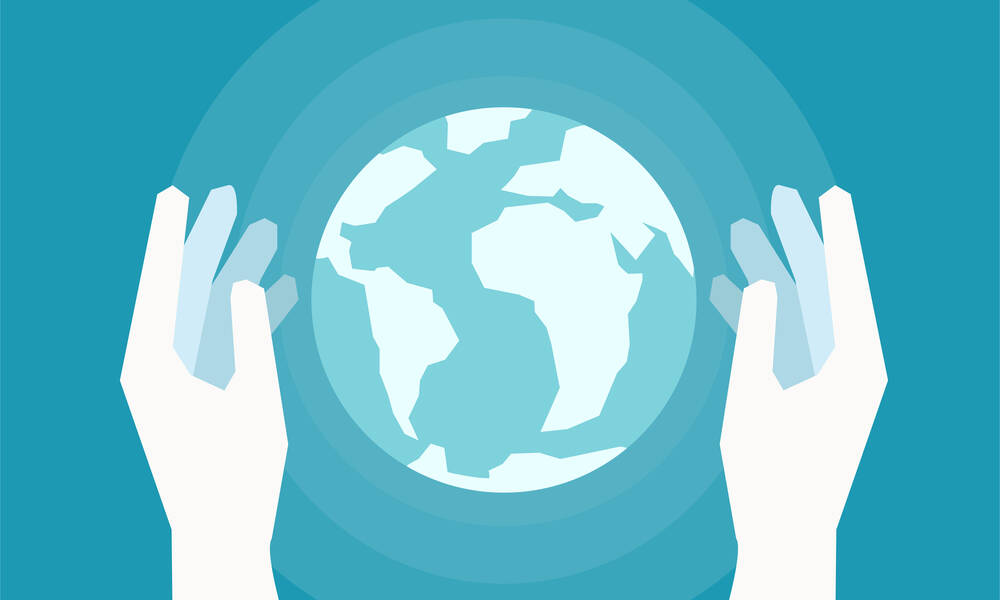
First Steps to Global Advocacy
Getting your association's voice heard on policy issues outside the United States can be a challenge. One group has made headway with a lot of listening and not going it alone.
Advocacy can often be a challenge for nonprofits on the home front: Plenty of American associations invest a lot of time and money connecting with statehouses and Congress to get their message heard. And that work can be doubly daunting if you want to make changes outside the United States as well.
The most important thing in any kind of advocacy is listening.
Elissa M. Myers, CAE, executive director of the Academy for Eating Disorders (AED), doesn’t discount the difficulty of the effort. Doing work globally to connect with policymakers means a lot of time in the air, a lot of relationship-building, and a lot of small successes that you have to hope will eventually build into bigger ones. But if you’re patient, she says, and you know better than to behave like the American parachuting in to fix things, you can make headway.
“The number-one, most important thing in any kind of advocacy, but international advocacy in particular, is listening,” she says. “When I approach a group or when I approach a government, I don’t go in and say, ‘Do this.’ I ask, ‘What’s going on? What do you guys see? What are the problems that you’re struggling with? And how can we help?’”
Beyond the act of simply listening, Myers shared four more points for associations to consider if they’re going to take their advocacy efforts global.
Get a partner. Partnerships are essential in most international initiatives, and Myers says it’s critical for getting a grip on policy matters. To that end, AED makes use of the members it has in 78 countries and the 40-plus partners, chapters, and affiliates around the world. In New Zealand, for instance, AED is working with its counterpart there to work on an issue involving laws that deny immigration visas to people perceived to be obese. The work to convince the government that its policy is rooted in bad science is ongoing, but AED isn’t going it alone. “A local partner can mean a lot of things, but for me, it means identifying and building the community of professionals who understand and relate to the mission and values and advocacy efforts of AED,” Myers says.
Hit the road. So much of international advocacy involves relationship-building, and only so much of that can be done via phone or Zoom meetings. Last November, Myers was invited to attend a tradeshow in Dubai, and she used the invite as an opportunity to connect with eating-disorder professionals there. Within months, AED had meetings with the country’s mental health minister and established a new chapter there. As a result, AED is now central to the country’s policy work on mental illness; it’s been invited to cosponsor a conference there. “They could care less what the U.S. thinks they should do about eating disorders or mental health,” she says. “But if I can help bring a collection of locals near them, then they’re the musicians, and I’m the orchestra leader. That’s where we have been successful.”
Consider an awareness campaign. AED supports the annual World Eating Disorders Action Day every June, which brings global awareness to the problem of eating disorders and misconceptions around them. That can be particularly helpful, Myers says, in setting the agenda in countries that haven’t yet developed policies around the issue. “It greases the skids and helps people feel like they’re doing something,” she says.
Bite the bullet and spend on translation. A lot of associations can fool themselves into thinking they’re successful with an all-English meeting simply because people showed up for it, Myers says. Early in her tenure, Meyers says was persuaded that translation wasn’t essential because English is the lingua franca of scientific societies. “But the people who don’t speak English didn’t come to my meetings,” she says. “You need to be sensitive about translation of materials and educational resources at conferences. Sorry—it’s expensive, and it’s extra work. But it’s absolutely critical if you want to reach people who are need-to-know. There are a lot of ministers of health who don’t speak English.”
(Feodora/iStock/Getty Images Plus)






Comments